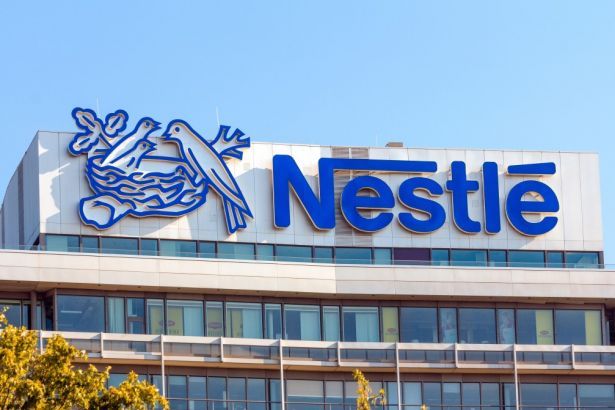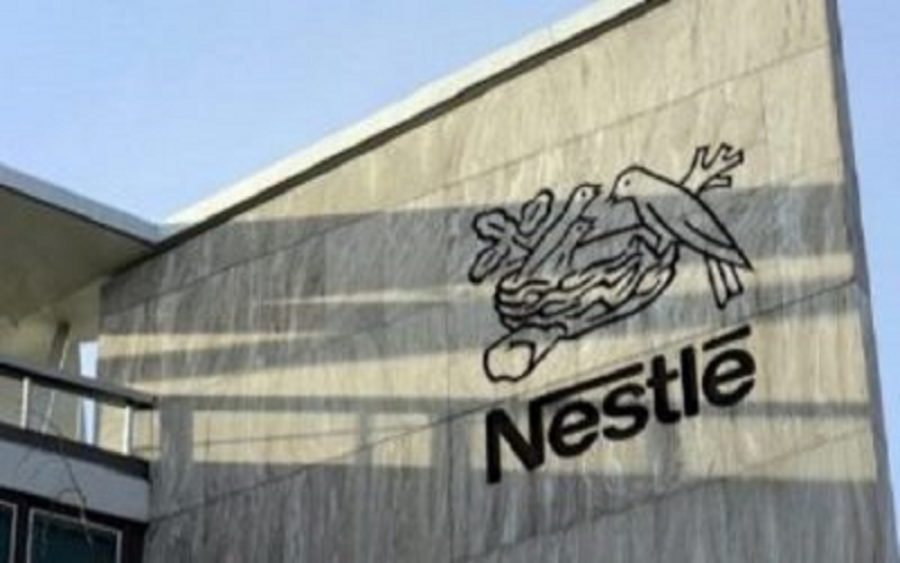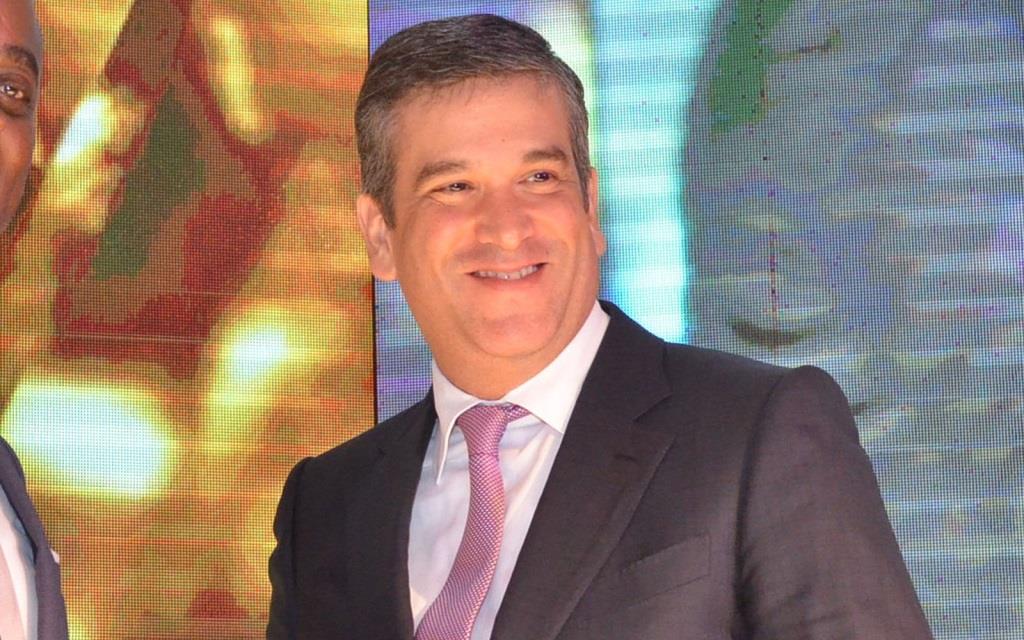Economy
Nestle Pays $7.15b to Market Starbucks Products

By Modupe Gbadeyanka
A licensing deal worth $7.15 billion has been sealed between Nestle and Starbucks Corporation, allowing Nestle have the perpetual right to market Starbucks’ consumer and foodservice products globally outside of Starbucks coffee shops, which are not part of the transaction.
“This transaction is a significant step for our coffee business, Nestlé’s largest high-growth category,” said Mr Mark Schneider, CEO, Nestlé.
“With Starbucks, Nescafé and Nespresso we bring together three iconic brands in the world of coffee.
“We are delighted to have Starbucks as our partner. Both companies have true passion for outstanding coffee and are proud to be recognized as global leaders for their responsible and sustainable coffee sourcing. This is a great day for coffee lovers around the world,” he added.
“This global coffee alliance will bring the Starbucks experience to the homes of millions more around the world through the reach and reputation of Nestlé,” President and CEO of Starbucks, Mr Kevin Johnson, stated.
“This historic deal is part of our ongoing efforts to focus and evolve our business to meet the changing consumer needs, and we are proud to work alongside a company that is committed to our shared values,” he added.
Business Post reports that the two companies will work closely together on innovation and go-to-market strategies to bring the best coffee to customers around the world as the deal allows Nestlé to capture exciting new growth opportunities in the rest of the world with Starbucks premium products. As a complete provider of coffee solutions, Nestlé will accelerate growth in out-of-home channels.
However, the agreement is subject to customary regulatory approval and is expected to close by the end of 2018. The agreement excludes Ready-to-Drink products and all sales of any products within Starbucks coffee shops.
As part of this transaction, Starbucks will receive an up-front cash payment of $7.15 billion for a business which generated annual sales of $2 billion.
But the transaction does not include the transfer of any fixed assets, which facilitates a smooth and efficient integration and Nestlé expects this business to contribute positively to its earnings per share and organic growth targets as from 2019.
Nestlé’s ongoing share-buyback program will remain unchanged, the management said, but approximately 500 Starbucks employees will join the Nestlé family to drive performance of the existing business and global expansion. Operations will continue to be located in Seattle.
Meanwhile, notable credit rating company, Moody’s, has rated the Nestlé’s Starbucks deal as “credit negative,” changing its outlook on Nestlé’s Aa2 rating to negative from stable.
It noted that the deal will be fully funded with debt, increasing Nestlè’s reported gross debt by approximately 20 percent.
Moody’s said because Nestle confirmed that its ongoing CHF20 billion share buyback to be completed by 2020 will not be amended following the transaction, the firm’s credit metrics, which are already weak for its current Aa2 rating, will deteriorate.
“We expect Nestlé’s ratio of retained cash flow to net debt to drop to below 20% in 2019 and 2020 from 29 percent in 2017, which is below our 30 percent quantitative guidance for its Aa2 rating, and its ratio of funds from operations to net debt to decline to 36 percent -40 percent from around 56 percent,” Moody’s said in its report obtained by Business Post.
However, Moody’s said in spite of the negative credit implications, the agreement is positive from an industrial standpoint because it will reinforce Nestlé’s position in the coffee segment, which is growing faster and with higher profitability than the group’s average.
In 2017, Nestlé’s powdered and liquid beverage division, which includes coffee, grew by 3.6 percent compared with the group’s consolidated organic sales growth of 2.4 percent and the division’s underlying trading operating margin was 21.9 percent compared with a consolidated 16.4 percent.
The Starbucks’ business included in the agreement generated approximately $2.0 billion of revenue in 2017 and Nestlé could rapidly expand it, especially outside the US given its global distribution platform.
Moreover, the deal does not entail any fixed-asset transfer, which should limit execution risk and reduce integration costs.
The agreement is consistent with Nestlè’s strategy to reach mid-single-digit organic sales growth in 2020 and improve its underlying operating margin to 17.5 percent -18.5 percent by 2020 from 16 percent in 2016, reflecting accelerating organic sales growth via product innovation and renovation; a CHF2.0-CHF2.5 billion cost-savings programme; and the adjustment of the group’s product portfolio by disposing of low-growth, low margin segments and by investing in more attractive ones. Recent transactions include the disposal of the US confectionery business for $2.8 billion in January 2018, the acquisition of Canadian nutritional company Atrium for $2.3 billion in December 2017 and the purchase of a 68 percent stake in premium coffee retailer Blue Bottle Coffee in September 2017. The company is also considering the disposal of Gerber’s life insurance business.
Economy
Uzoka-Anite Warns Against Inflation Risks from Oil, Gas Earnings Surge

By Adedapo Adesanya
The Minister of State for Finance and chairman of the Federation Account Allocation Committee (FAAC), Mrs Doris Uzoka-Anite, has cautioned that a projected surge in oil and gas revenues following President Bola Tinubu’s latest executive order could trigger inflationary pressures and exchange rate volatility if not carefully managed.
She said that the recent executive order mandating the direct remittance of certain oil sector revenues to the federation account would provide regulatory clarity and significantly strengthen revenues accruing to the federation account, but warned that sudden liquidity injections into the economy may complicate monetary policy coordination with the Central Bank of Nigeria and erode the real value of allocations to federal, state and local governments.
While addressing members of FAAC in Abuja, Mrs Uzoka-Anite commended President Tinubu on the order, describing the development as a structural fiscal correction aimed at restoring constitutional discipline to petroleum revenue management and enhancing distributable income across the three tiers of government.
She said that the revenue outlook was improving due to ongoing structural reforms introduced by the Federal Government.
According to her, the newly implemented tax reform measures are broadening the tax base, improving compliance and enhancing administrative efficiency.
“Also, the executive order signed by Mr President on February 13 is reinforcing revenue discipline in the oil and gas sector and reducing leakages,” she said.
The minister said that the order suspends the 30 per cent allocation to the Frontier Exploration Fund (FEF) and suspends the 30 per cent management fee on oil and gas profit payable to NNPC Limited.
She said that the order also directed that gas flare penalties be paid into the federation account, and mandated full remittance of petroleum revenues without unconstitutional deductions.
Mrs Uzoka-Anite said that the reform marks a shift from a retention-based oil revenue model to a gross remittance, federation-first model.
“The implications for FAAC are very significant; more oil and gas profit will now flow directly into the federation account.
“Gas flare penalties will become distributable revenue, and previously retained management fees will no longer reduce remittable inflows,” she said.
She said that the reforms were expected to result in higher monthly gross inflows into the federation account, and increased allocations to federal, state and local governments.
The minister said that a retrospective audit of the FFF, the Midstream and Downstream Gas Infrastructure, was due, and NNPC management fee deductions could lead to recoveries that may provide a one-off fiscal boost.
She welcomed the improved revenue outlook and cautioned against the risks associated with sudden liquidity injections.
“Experience shows that when revenues rise sharply and are distributed fully and immediately, large liquidity injections can increase inflationary pressures, complicate monetary management and reduce the real purchasing power of allocations,” she said.
She said that excess aggregate demand, exchange rate pressure, asset price distortions and inflationary risks could arise if increased inflows were not carefully managed.
Mrs Uzoka-Anite said that to mitigate such risks, she proposed phased disbursement of one-off recoveries.
She suggested that retrospective recoveries be staggered rather than injected into the economy in bulk, with a portion temporarily warehoused in a stabilisation buffer.
She also recommended strengthening the excess crude and stabilisation buffer mechanism to channel part of incremental inflows into a fiscal stabilisation window.
“This could offset revenue shortfalls in weaker months and reduce procyclicality in spending.
According to her, enhanced coordination with the CBN would be pursued to align fiscal injections with liquidity management tools and support open market operations where necessary.
Mrs Uzoka-Anite urged states and federal Ministries, Departments and Agencies (MDAs) to prioritise capital expenditure over recurrent expenditure.
She called for investment in infrastructure, agriculture, energy and other productive sectors, and avoid unsustainable wage or consumption spikes.
“Productive spending expands supply capacity and mitigates inflation,” she said.
She also announced plans to introduce monthly revenue transparency dashboards, production-to-remittance reconciliation reporting, and clear reporting of incremental inflows arising from tax reforms and the executive order.
The junior finance minister said that the reforms presented an opportunity to deepen fiscal federalism, enhance distributable revenue, restore constitutional clarity and strengthen trust among tiers of government.
She also advised that increased revenue must not translate into fiscal complacency.
“We must resist the temptation to treat incremental inflows as permanent windfalls. We should reduce debt burdens, clear arrears responsibly, build buffers and invest in growth-enhancing sectors,” she said.
Economy
Dangote Refinery Shares to be Available to Public in Five Months

By Adedapo Adesanya
The chairman of Dangote Group, Mr Aliko Dangote, has said that within the next five months, Nigerians should be able to purchase shares of Dangote Petroleum and Refinery.
Mr Dangote made this revelation on Sunday during a tour of the facility by the chief executive of the Nigerian National Petroleum Company (NNPC) Limited, Mr Bayo Ojulari, alongside members of the company’s executive management.
The $20 billion refinery is the largest single-train refinery in the world with 650,000 barrels per day refining capacity. There are efforts to boost the capacity to 1.4 million barrels per day soon.
Speaking with journalists, Mr Dangote said, “And the other issue is that they (NNPC) are holding 7.25 per cent of the shares that we have here, which is more than the shares Elon Musk has in Tesla. And they are holding that on behalf of Nigerians,” he said.
“So individually, Nigerians too will have an opportunity in the next, maybe a maximum of four to five months. There will actually be an opportunity to buy the shares.”
He added that shareholders will have the option to receive their dividends in either naira or dollars, as the refinery also earns in dollars.
Commenting on Mr Ojulari’s visit, the billionaire businessman said the NNPC, represented by Mr Ojulari and its management team, was not just a guest but a shareholder.
“Today is really our best day ever” at the facility. I know NNPC invested in us when we were not really sure whether the refinery would be successful.
“So that’s the kind of level of confidence. But right now, the relationship with the new set of people that we have at NNPC, I think the sky is the limit, and we will cooperate and also make sure that we work together to make sure that we make Nigerians proud.”
Speaking on prospects of partnership with NNPC in the upstream sector, he said, “We have block 71, 72, but we’re going to look much deeper”.
“Most likely, depending on our own discussions with them, we will partner with them, maybe in some of the upstream. They, too, will partner with us here because here is not just a refinery, it’s an industrial hub.
“And that’s why we’re doing linear alkaline benzene, which is a raw material for detergents, ” he added.
Economy
NGX Investigates Zichis Stocks After 859% Rise in One Month

By Aduragbemi Omiyale
The Nigerian Exchange (NGX) Limited has launched an investigation into trading activities on the shares of Zichis Agro-Allied Industries Plc.
A notice from Customs Street on Monday disclosed that this has led to the suspension of the company for now.
This development comes about a month after Zichis was listed on the domestic bourse and placed in the growth board of the NGX.
In the circular, it was disclosed that the suspension may be lifted after the conclusion of the findings, but for now, investors will not be able to trade the organisation’s securities on the NGX platform.
“The suspension of trading in Zichis shares shall be lifted upon the conclusion of an investigation into the trading activities on the company’s shares,” a part of the disclosure stated.
The bourse explained that it wielded the big stick on Zichis in compliance with Rule 7.0, Rules on Suspension of Trading in Listed Securities, Rulebook of The Exchange (Issuers’ Rules).
This part of the law states that, “Notwithstanding any of the foregoing provisions, the exchange may, in accordance with any of its rules, place the trading of any security on suspension.
“It may also do so if it is of the view that such suspension will be in the interest of the investing public and in accordance with the SEC Rules.”
In announcing the action on the firm, the NGX declared that, “The shares of Zichis Agro-Allied Industries Plc have been suspended from trading on the facilities of Nigerian Exchange Limited (NGX), effective today, Monday, February 23, 2026.”
Business Post reports that last week, shares of Zichis appreciated by 60.74 per cent to N17.36. It joined the stock exchange at N1.81, indicating it has gained N15.55 or 859.12 per cent in one month.
-

 Feature/OPED6 years ago
Feature/OPED6 years agoDavos was Different this year
-
Travel/Tourism10 years ago
Lagos Seals Western Lodge Hotel In Ikorodu
-

 Showbiz3 years ago
Showbiz3 years agoEstranged Lover Releases Videos of Empress Njamah Bathing
-

 Banking8 years ago
Banking8 years agoSort Codes of GTBank Branches in Nigeria
-

 Economy3 years ago
Economy3 years agoSubsidy Removal: CNG at N130 Per Litre Cheaper Than Petrol—IPMAN
-

 Banking3 years ago
Banking3 years agoSort Codes of UBA Branches in Nigeria
-

 Banking3 years ago
Banking3 years agoFirst Bank Announces Planned Downtime
-

 Sports3 years ago
Sports3 years agoHighest Paid Nigerian Footballer – How Much Do Nigerian Footballers Earn
















